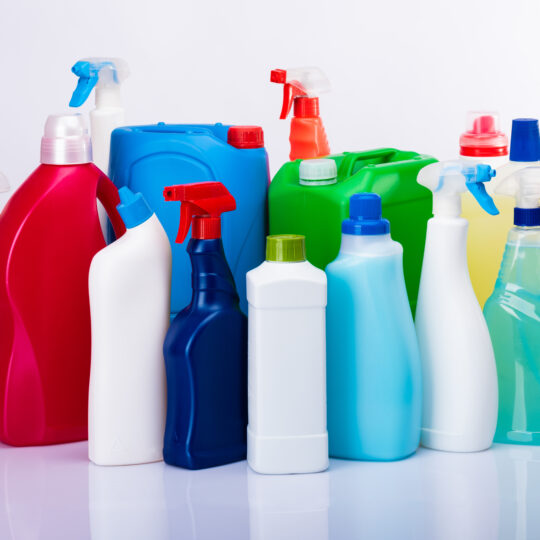Homeowner Tips for Disposing Hazardous Waste

Do you know how much hazardous waste a home can contain? Learn which problematic products could be currently in your cabinets and how to properly get rid of them.
Hazardous Materials in Your Home
Any product considered to be toxic, flammable, or corrosive is technically hazardous. This includes:
- Motor oil and antifreeze
- Chemical cleaners, including bleach and ammonia
- Oil-based paints, stains, and paint thinners
- Insecticides, herbicides, and fungicides
- Electronics, batteries (including rechargeable), light bulbs
- Aerosol cans
- Adhesives
- Pool chemicals
While some homeowners keep these items until they’re used up, sometimes they need to be disposed of once they’re too old to be effective. Proper disposal is crucial to prevent harm to people, pets, and the environment. Done the wrong way, these materials can contaminate soil and water sources, becoming toxic to plants and human health. Also, when not treated properly, flammable, reactive, or corrosive materials can spark fires and damage property. There are ways to decrease the risk.
Homeowner Tips for Disposing Hazardous Waste
One of the best ways to get rid of hazardous waste is to limit the use of these products in the first place. While some formulas may seem more effective than eco-friendly alternatives, they can also do more harm than good. If you do need to use them and then discard of any leftovers, keep these tips in mind:
- Never pour hazardous liquids down drains, on the ground, or into storm sewers.
- Throwing hazardous waste in the regular garbage is unsafe and often against local regulations.
- Keep products in their original, labeled containers. When transporting or disposing, ensure the container is tightly sealed.
- Never mix different wastes or reuse old containers to avoid dangerous chemical reactions.
- Take waste to designated collection sites or arrange for special pickups. Check your area’s waste management website for locations, hours, and accepted materials.
- Some materials can be recycled at specialized facilities or retail stores.
- If products are still usable and in their original containers, consider giving them to a friend, neighbor, or community group.
Help keep yourself, your home, and your environment safe by limiting the amount of hazardous products and properly disposing them when necessary.